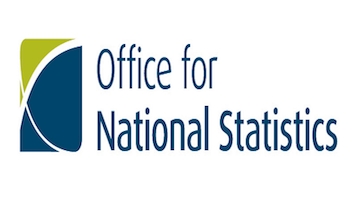The income for retired households has grown by 13% since the financial crash of 2008.
According to the Office for National Statistics, the economic downturn had a larger effect on non-retired households, with median income in 2015/16 still 1.2% lower than pre-downturn levels in 2007/08.
But the income for retired households grew by 13% over the same period.
The median income for retired households rose by 3.1% between 2014/15 and 2015/16, while the median income for non-retired households was broadly unchanged.
Claudia Wells, head of household income and expenditure analysis at the ONS, said: “Household incomes are above their pre-downturn peak overall, but not everyone is better off. While retired households’ incomes have soared in recent years, non-retired households still have less money, on average, than before the crash.”
Jon Greer, Pensions Expert at Old Mutual Wealth, said: “Today’s figures from the ONS re-ignites the argument that intergenerational unfairness is a threat.”
He said: “This gives government further cause for thought to pursue a policy agenda focused on rebalancing the intergenerational contract. The most obvious targets are the state pension triple lock, which seems likely to be replaced with an earnings linked system, and universal pension benefits, like the winter fuel allowance, which could come under scrutiny.”
The median UK household disposable income was £26,300 in the financial year ending 2016 (2015/16); this was £600 higher than the previous year and £1,000 higher than the pre-downturn value of £25,400 in 2007/08 (after accounting for inflation and household composition).
Median disposable income for the poorest fifth of households rose by £700 (5.1%) between 2014/15 and 2015/16; in contrast the income of the richest fifth of households fell by £1,000 (1.9%) over the same period.
Steven Cameron, pensions director at Aegon UK, said: “Today’s figures highlight that pensioner households have done well in recent years, compared to the working population with their incomes rising 13% (to £21,770) since the financial crisis. By contrast the incomes of working population households have decreased 1.2% (to £28,481) over the same period.
“While the figures suggest there has never been a better time financially to be retired, today’s pensioner households are benefiting from two big factors. Firstly, many are receiving an income from generous defined benefit schemes. While these schemes will continue to pay out for many years to come, increasingly pensioners’ incomes will come from less generous defined contribution schemes.
Overall, the ONS stated that cash benefits and direct taxes led to income being shared more equally between households. Original income (before cash benefits and direct taxes) for the richest fifth of households was around 12 times higher than the poorest fifth (£85,000 and £7,000 per year respectively) while disposable income (after cash benefits and direct taxes) for the richest fifth was 5 times higher than the poorest fifth (£62,400 and £12,500 per year respectively).
There has been a gradual decline in income inequality in the last 10 years, with levels similar to those seen in the mid to late 1980s, the ONS report said.
Dominic Baliszewski, director of consumer strategy for Momentum UK, said: “Before we start celebrating the fact that average disposable income is on the rise, we should remember that, taking pensioners out of the equation, the year-on-year increase is marginal at best.
“Non-retired households still have less disposable cash than they did before the financial crisis and are now facing tough months ahead, with rising inflation and a weak pound pushing up the price of everyday goods.”

